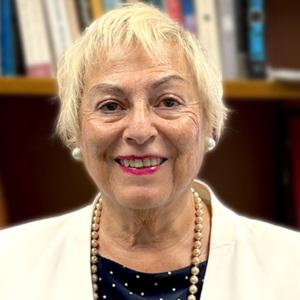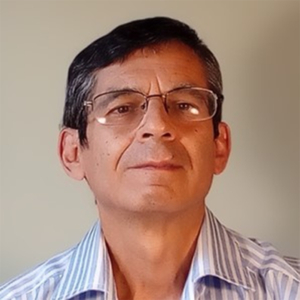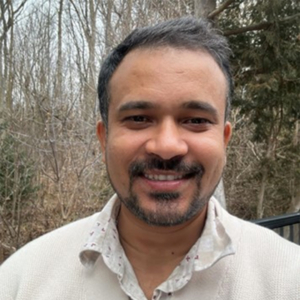About us
About the Institute
The Peel Institute of Research and Training (PIRT) is the research arm of Family Services of Peel (FSP), a non-profit social service organization situated in the Region of Peel. Through its achievements in the community, PIRT has evolved to become an example of how a social service agency can integrate research and knowledge creation and bring together academic researchers, community organizations, and community members to bridge the long-standing gap between research and practice. This overview offers an experiential account of a unique and innovative research endeavour by a social service agency that can support other social service agencies in expanding their operations into the realm of research.


PIRT serves as a central, region-wide, and community-based initiative focusing on supporting and enhancing the well-being of Peel residents. PIRT is grounded in an Equity, Anti-Oppression, and Anti-Racism Framework and serves as a crucial point for data-driven, evidence-informed practice. Using a community-based participatory research (CBPR) approach, PIRT aims to improve community services by combining the perspectives of the diverse population served, academia, and community service providers.
PIRT was founded in 2013, as the Peel Institute on Violence Prevention (PIVP), following an open forum discussion called Café Scientifique: An Open Discussion of the Experiences of Immigrant and Racialized Women Survivors of Sexual Assault in Accessing Primary Health Care Services.
Over the past decade, PIRT has faced numerous challenges related to financial support, staff retention, and acceptance into the social service community. Undeterred, PIRT has continued to flourish, creating partnerships within FSP, with the broader community and academic institutions, and publishing articles in international journals and books. Its research focus has expanded to meet the changing needs of the community it serves. Within the past two years, PIRT has seen immense success, collaborating with academic and community partners, seeing a high proposal acceptance rate, and increasing its presence in the community. Fundamental to reaching this point has been the PIRT framework, its community-based participatory research approach, the infrastructure, and organizational support of FSP and academic institutions, and its approach to knowledge mobilization.


History of PIRT
The Institute was established following a forum discussing barriers faced by immigrant and racialized women survivors of sexual assault. Although initially a collaborative effort, the responsibility for running the Institute eventually fell solely to FSP after the dismantling of the Peel Committee on Sexual Assault.
Despite challenges such as financial struggles and staffing issues, PIRT has grown over the past decade, forming partnerships, publishing research, and increasing its presence in the community. The success of the Institute is largely attributed to its unique framework, developed by the Institute’s Director, which integrates equity, intersectionality, Indigenous health concepts, and the Social Determinants of Health into its operations.
Learn more about us
If you would like to read more about how our institute was developed, check out the following resources!
Mandate
The Peel Institute of Research and Training (PIRT) is mandated to lead Participatory Action Research (PAR) to improve the social well-being of vulnerable community groups, including racialized individuals, families, women, people with disabilities, 2SLGBTQI+, and newcomers. PIRT focuses on conducting collaborative PAR projects with the community, policymakers, and academia to address social and health disparities. Additionally, PIRT plans and implements training initiatives to bridge gaps in social practices and improve outcomes related to the social determinants of health. Enhancing knowledge transfer and mobilization is a key aspect, achieved by communicating research findings and recommendations through various platforms, including publications, social media, and conferences. PIRT also works to increase community partner engagement and commitment to secure resources that support well-being initiatives. PIRT operates within a framework grounded in equity, anti-oppression, and anti-racism to conduct data-driven and evidence-informed research and training. By fulfilling this mandate, PIRT strives to create a more equitable and inclusive society in the Peel region.

Values

R: Respect and dignity for all persons
E: Evidence-Informed Practice
S: Survivor-centered approach
E: Equity for all persons
A: Anti-oppressive practices
R: Racism-free environment
C: Community involvement and participation & Compassion
H: Helping build stronger families
Meeting the Team

Director, PIRT.
BSc. B.A. M.A.
Monica Riutort
She managed the International Programs at the Department of Family and Community Medicine of the University of Toronto and was a lecturer at the Faculty of Medicine. She was also the Executive Director of the International Society for Equity in Health, Director of International Programs at the Centre for Research in Women Health and the WHO Collaborative Centre on Women’s Health and International Delegate of the Canadian Red Cross.

Statistician
Luis Lozano
Luis Lozano is a statistician consultant at PIRT. He has more than 5 years designing and performing research and evaluation of social and community projects of different not-for-profit organizations in Canada, Latin America and Africa. He has collected, analyzed and presented data for the Peel Family Pathways Project, Human Sex Trafficking Mobile Services Project, Skilled Trades Apprenticeship Service, Anti-Black Racism and the Peel Seniors Project. Luis has more than 10 years of experience designing, collecting and analyzing quantitative and qualitative data for impact and process evaluation using advanced features of different computer applications

Research Assistant.
PhD Candidate, MSc, HBA,
Sarah Costantini

Senior Research Fellow, RN, MPH
Msc.GHP, PhD
Dr. Cilia Mejia-Lancheros
Dr. Cilia Mejia-Lancheros is a Public Health and Epidemiology researcher specializing in the impact of social determinants at individual, community, system, and structural levels on the health and well-being of individuals, families, and communities across the lifespan and generations. She designs, implements, and evaluates health and social solutions in collaboration with community partners, utilizing advanced research methodologies and co-design approaches.
She holds a Ph.D. in Pediatrics, Obstetrics and Gynecology, Preventive Medicine, and Public Health, along with master’s degrees in Global Health Policy and Public Health, and an undergraduate degree in Nursing. She is a recipient of the CIHR Research Excellence, Diversity, and Independence (REDI) Early Career Transition Award. With the support of this award, she leads a Peel-based research project focused on co-developing community-centered mental well-being programs for newcomer families.

Research Assistant.
RP(Q), MA, HBSc.
Elena Temelkova
Elena is one of PIRT’s research assistants and has worked on a variety of projects since 2022. She is the leading grant writer at the Institute, aiding PIRT in securing several short and long-term grants over the years for conducting research, leading programs and supporting FSP’s endeavors. Elena is also a Registered Psychotherapist (Qualifying) specializing in trauma-informed care. She holds a masters in Counselling Psychology from Yorkville University and an Honours Bachelor of Science in Forensic Psychology from the University of Toronto.

Administrative Manager.
MA, BSc.
Natalia Lancheros
Natalia Lancheros is an Administrative Assistant at Family Services of Peel, where she provides support to cross-functional teams. Originally from Colombia, she holds a Master’s degree in Disability and Social Inclusion from the National University of Colombia and a Bachelor’s degree in Physiotherapy from Rosario University (Colombia). In 2022, she relocated to Canada to enhance her expertise by earning a Project Management Diploma from Centennial College, further strengthening her ability to manage complex projects and complementing her expertise in healthcare and social services.

Research Assistant.
MA
Mushtaq Ahmed
Along with MA honours in English literature, Mushtaq is trained and certified in youth leadership and social change (TISS), inclusive education (University of Glasgow), and the human rights approach to disability (UNITAR). His specializations include designing innovative teaching and learning for equity-seeking adult learners with diverse needs. For his commitment to equity and innovation, he was invited to the Global Refugee and Migration Congress in Turkey to present his innovative idea of training refugee educators through the use of collaborative poster making and art-based teaching. In COVID 19, he participated in Australia’s Dirt Lane Press’ global storytelling initiative and translated a children’s story book, Where Happiness Hides, to make storytelling accessible for all.
In his free time, he enjoys volunteering and supporting a local theatre in Mississauga

Administrative Assistant.
HBSc.

